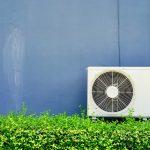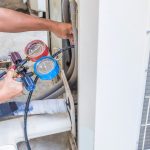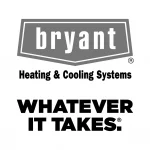2009 Spring Newsletter Volume 1 Number 1
Comfort Myths
Myth #1: Turning the thermostat way down will cool your home faster. Your air conditioner (A/C) will deliver air at the same rate, regardless of your different temperature setting. It runs at a set rate until the temperature on the thermostat is satisfied. It is best to just set the thermostat at your desired temperature.
Myth #2: You save money by closing registers in unused rooms. By closing the registers in unused areas of your home, you are increasing the pressure in the duct system. This increase in pressure will cause more conditioned air to be forced out of leaky ductwork, costing you money. Also, the extra pressure can add stress to your equipment, leading to an increased risk of system failure.
Myth #3: It doesn’t matter which way your fan goes when using it to reduce your utility bill. Actually, it does matter! When your fan moves counter-clockwise it provides a cooling breeze; in turn can make 78-degree temperature feel like 72 degrees. By doing so, fans can help lower utility bills.
Myth #4: You save money by turning you’re A/C off during the day while at work. If you turn your A/C off before you leave to work and turn it back on when you get home, it will have to work extra hard to dehumidify and cool your home. Thus, costing you more money and putting extra stress on your equipment, possibly leading to more maintenance. You’re much better off getting a programmable thermostat and just adjusting the temperature setting for while you are gone.
Myth #5: You’re better off getting a larger A/C because it will cool faster and better. Having an A/C that is too large for your home will lead to greater operating cost, while being less comfortable. This is because your system will turn on and off more frequently, with short blasts of air; causing a drafty feeling in your home. A properly sized system will dehumidify better and provide more even temperatures throughout your home.
Improving Indoor Air Quality (IAQ)
Indoor Air Quality has become a major topic for concern in many households across the U.S. and for good reason. Complete comfort is about more than just the temperature, it’s also about maintaining good indoor air quality. The air in tightly-sealed well-insulated homes can become stale as the same air is re-circulated. As a matter of fact, indoor air quality is among the EPA’s top three heath concerns because the air inside your home is often 2-5 times dirtier than the outside air.
To do your part, consider the following tips for reducing air pollution:
- Air Filtration. The air filtration that you chose for your house can have the greatest affect on the indoor air quality in your home. There are several different options to choose from depending on the needs of your household. Installing a media filter, electronic air cleaner, or HEPA filter are among the best whole-home air filtering units available.
- Control Humidity Levels. Humidity plays a major role in Wisconsin homes’ IAQ, with really dry air throughout winter and really humid air during summer. You can efficiently control humidity levels with a whole-home humidifier and/or dehumidifier.
- Comfort Controls. Thermostats control the comfort levels within your home and can improve your systems operating efficiency, which means decreased utility cost. There are very few homeowners that spend much time when deciding which thermostat is right for their home, but perhaps they should because thermostats can do much more than turning on and off your air conditioner.
- UV Lighting. UV Lighting can be used to reduce bacteria, viruses, germs, and mold in your home. It works silently and improves the indoor air quality of your home at the same time.
- Appliance Inspection. Inspection of your heating and cooling systems can help reduce emissions of harmful gases into indoor and outdoor air. Having a professional (I don’t know, maybe Pharo Heating!) check your home comfort system in the spring and fall will help make sure your system is operating efficiently and safely.
To learn more about air pollution and how you can play a role in its reduction, visit the Environmental Protection Agency (EPA) Website at www.epa.gov.
To learn more about controlling the air pollution in your home, give us a call at 608-233-1001 or contact us and receive a free Indoor Air Quality consultation.












